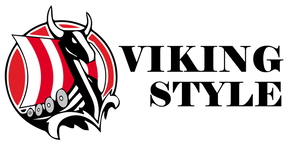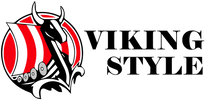
Thor, God of Thunder, Strength, Fertility and Oak-Trees, is the mightiest of the Æsir and the most well known Norse deity. He wields the hammer Mjolnir in combat, and acts as the protector of mankind, often fighting against all manner of monsters. He is also quite hot-headed and not the most intelligent of gods. At Ragnarok, he shall do battle with the Midgard Serpent, and both shall perish.
Ragnar fears no God with the exception of Thor:
"He therefore feared the might of no supernatural prowess, save of the god Thor only, to the greatness of whose force nothing human or divine could fitly be compared."
Source: Gesta Danorum
Thor’s strength exceeds that of all living things:
"For this reason must he be called Allfather: because he is father of all the gods and of men, and of all that was fulfilled of him and of his might. The Earth was his daughter and his wife; on her he begot the first son, which is Ása-Thor: strength and prowess attend him, wherewith he overcometh all living things."
Source: The Prose Edda: Gylfaginning
Thor can lift the Midgard Serpent, which coils around the Earth:
"And again he said: 'It seemed to me not less noteworthy when thou didst lift up the cat; and to tell thee truly, then all were afraid who saw how thou didst lift one foot clear of the earth. That cat was not as it appeared to thee: it was the Midgard Serpent, which lies about all the land, and scarcely does its length suffice to encompass the earth with head and tail. So high didst thou stretch up thine arms that it was then but a little way more to heaven."
Source: The Prose Edda: Gylfaginning
Thor is the strongest among Gods and men:
"Then said Gangleri: "What are the names of the other Æsir, or what is their office, or what deeds of renown have they done?" Hárr answered: "Thor is the foremost of them, he that is called Thor of the Æsir, or Öku-Thor; he is strongest of all the gods and men." Source: The Prose Edda: Gylfaginning
Thor can smite anything with his hammer Mjolnir, and it’s strikes never miss:
"Then he gave the hammer to Thor, and said that Thor might smite as hard as he desired, whatsoever might be before him, and the hammer would not fail; and if he threw it at anything, it would never miss, and never fly so far as not to return to his hand; and if be desired, he might keep it in his sark, it was so small; but indeed it was a flaw in the hammer that the fore-haft was somewhat short."
Source: The Prose Edda: Skáldskaparmál
Thor is so powerful he can destroy the universe:
"It seems obvious that Útgarða-Loki's giants were terrified for the same reason that Hymir was: Þórr's strength is great enough to threaten the very structures which hold the universe together."
Source:
A strike from Mjolnir made the Earth shake:
"Drew up boldly
the mighty Thor
the worm with venom glistening,
up to the side;
with his hammer struck,
on his foul head's summit,
like a rock towering,
the wolf's own brother.
The icebergs resounded,
the caverns howled,
the old earth
shrank together:
at length the fish
back into the ocean sank."
Source: The Poetic Edda: Hymiskviða
Thor is the strongest of the gods, with his hammer Mjolnir. He also holds the belt Megingjörð, which increases his strength by 50%:
"The daughter and wife of Odin was Earth, and of her he got Thor, him followed strength and sturdiness, thereby quells he all things quick; the strongest of all gods and men, he has also three things of great price, the hammer Mjölnir, the best of strength belts, and when he girds that about him waxes his god strength one-half, and his iron gloves that he may not miss for holding his hammer’s haft."
Source: The Völsungasaga
"He has also three things of great price: one is the hammer Mjöllnir, which the Rime-Giants and the Hill-Giants know, when it is raised on high; and that is no wonder, it has bruised many a skull among their fathers or their kinsmen. He has a second costly thing, best of all: the girdle of might; and when he clasps it about him, then the godlike strength within him is increased by half. Yet a third thing he has, in which there is much virtue: his iron gloves; he cannot do without them when he uses his hammer-shaft."
Source: The Prose Edda: Gylfaginning
Thor can nearly destroy the Earth:
"All the hawks’ sanctuaries (skies) found themselves burning because of Ull’s stepfather (Thor), and the ground all low was battered with hail, when the goats drew the temple-power (Thor) of the easy-chariot forward to the encounter with Hrungnir. Svolnir’s widow (Jord, earth) practically split apart. Baldr’s brother (Thor) did not spare there the greedy enemy of men (Hrungnir). Mountains shook and rocks smashed; heaven above burned. I have heard that the watcher (Hrungnir) of the dark bone (rock) of the land (sea) of Haki’s carriages (ships) moved violently in opposition when he saw his warlike slayer."
Source: The Ásatrú Edda: Sacred Lore of the North
Thor created a star out of a toe by throwing it into the sky:
"A toe was sticking out, so Thor broke it off and threw it up into the sky to make the star Aurvandilstá ("Aurvandil's Toe")."
Source: Norse Mythology: A Guide to Gods, Heroes, Rituals, and Beliefs
Thor also wrestled Elli the personification of old age itself and time Simply attempting to face off against the personification of old age is daunting. Limbs turn weak, and the heart grows cold as the thoughts of inevitable mortality creep into the mind, even to a God. Elli strikes an opponent, rapidly draining their strength for a period. The longer they remain near her, the stronger the effect becomes until they succumb.
Elli

GENERAL INFORMATION
ALIASES
Útgarda-Loki's Nurse
In Norse mythology, Elli (Old Norse "old age") is a woman who is the personification of old age, but still maintains her strength.
Myths and Legends
In the book Gylfaginning, Þórr and his companions Loki and Þjálfi are in the hall of giants where they meet difficult challenges testing their strength and skill. Þórr has just been humiliated in a drinking challenge and wants to get even. Challenging the master of the hall, a giant named Útgarða-Loki, to a wrestling match, the giant instead has him fight an old wizened woman first. According to the book, the fight went as follows:
There is no need to make a long matter of it: that struggle went in such wise that the harder Thor strove in gripping, the faster she stood; then the old woman attempted a hold, and then Thor became totty on his feet, and their tuggings were very hard. Yet it was not long before Thor fell to his knee, on one foot. Then Útgarda-Loki went up and bade them cease the wrestling, saying that Thor should not need to challenge more men of his body-guard to wrestling.
Later, when Þórr and his company are safely out of the hall the giant explains that Þórr's opponent was much more formidable than she appeared to be and that Þórr's prowess was, in fact, astonishing.
Old Age and the Norse Gods
Elli is not mentioned in any other source but the notion that not even the gods are immune to the effects of aging is an intriguing concept. It is supported by the fact that they must consume the apples of Iðunn regularly to stay young. In other words, this story represents that all are helpless before old age. It should also be noted Thor didn't have his belt of strength or his magical gloves when he wrestled Elli which makes this feat even more impressive it should also be noted that the Greek gods were by no means any different from norse gods as they had to consume ambrosia in order to maintain youthfulness or immortality as well which alot of people like to say they were just full on immortal and couldn't die


